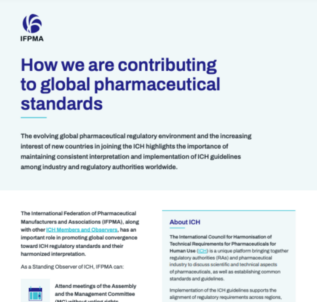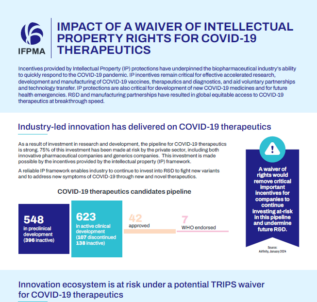Position Paper – Best Practices for In-Country Testing and Sample Management
In this paper, IFPMA will describe challenges faced by Industry for in-country testing and provide recommendations for more efficient management of samples.
Quality control of products may be performed by visual identity testing (in the case of changes made to the product label) or by laboratory testing. Samples can be required for both types of assessment and country regulatory requirements with varying procedures, timelines and sample volumes apply to for different quality control categories. In-country quality control testing by independent laboratories is necessary to prevent the distribution of unsafe or non-conforming products.
Regulatory convergence and harmonization in this area can provide more opportunities for strengthening regulatory oversight while applying limited resources more effectively. Today’s common international standards for manufacturing, distribution, evaluation and inspection lead to increasing convergence and harmonization. This will not only facilitate regulatory communication, but also other foster international cooperation through information-sharing, worksharing, reliance and recognition . Implementing these strategies can help NRAs to increase regulatory efficiency while decreasing the need for in-country testing of samples.




